#genre history
Text
The History of Cyberpunk
Or why every other SciFi Genre is called [something]punk

You know what? Let's do this. Because I have seen the discussion on whether or not Solarpunk is "punk" over the last few days and... people really gotta learn their history.
The first time a genre took the "punk" name was Cyberpunk. And for context we gotta talk a bit about the history of the Cyberpunk genre.
While some books that we in hindsight call "Cyberpunk" were released as early as the 1960s, the start of Cyberpunk as a genre got its start in the late 70s and early 80s.
The term was invented by Bruce Bethke, who published a short story in 1983 with the name "Cyberpunk". His idea was to juxtapose the term "punk" for both the mentality and the punk protagonists in his short story with the term cyber, short for the cybernetics they were wearing. And while the cybernetics have become a main stay in the genre, the punk attitudes are not always carried through...
Well, the title Bethke invented stuck, though. When 1984 Neuromancer was published, one of the most influencial works in the early days of the genre, he called it "a Cyberpunk novel" in the marketing. And from there... Well, the genre was suddenly named like that.
The 80s were definitely the decade that had the most influence on the genre, given that a lot of the big novels and graphic novels of the genre were released here.
A big influence was, no doubt, that 1982 the Blade Runner movie had released and had inspired quite a few writers and artists. (And yes, this makes Blade Runner a movie that released not only before the term Cyberpunk was coined, but also before the genre had a chance to define itself.)
Given that the genre was defined in the 80s, there are a lot of 80s anxiety kept within it about the rise of the Japanese economy, that are these days rarely questioned within the western Cyberpunk movement.
When the genre was coined and developed, Japan was the fastest growing economy in the world, being so influencial that they got to buy out several things in America. Something that kinda jerked white people in the US a lot. This is, why Cyberpunk originally depicted not only a capitalist hellscape - but specifically a capitalist hellscape were everything was bought out by Japanese companies, with many of those early antagonists being Japanese companies. And yeah... there was a lot of both anti-japanese racism, but also cultural appropriation of Japanese things in early Cyberpunk, at time surviving to this day. (But that is a story for another day.)
The general sense that Western Cyberpunk had, was always the idea of: We have a capitalist hellscape where the world is slowly dying and people are exploited with no end, while we have those kinda punky protagonists, who stand outside of the society and try to work against it. This being where the punk comes from.
Now, I could talk for length about how a lot of that punky attitude has been lost in more modern Cyberpunk media, but that, too, is a story for another day.
So, let me just talk about what happened then.
The term Cyberpunk really is darn catchy, right? So just when that name took hold, writer K.W. Jeter retroactively called his 1979 novel Morlock Night "steampunk". And guess what: This stuck, too. Though while the 80s Cyberpunk still stuck to the punk attitude, a lot of Steampunk did not. While for certain there is quite a bit of Steampunk that has kinda punky characters go against the quasi Victorian society of steampunk books (something most common in the air pirate novels I have read), a lot of other stories are more focused on a general sense of adventure.
But never the less... The genre names stuck and gave a nice baseline for naming other genre. We got Dieselpunk, Atompunk, Nanopunk, Arcanepunk, Dustpunk, Silkpunk and of course also Solarpunk and Lunarpunk.
And for the most part... The "punk" names mostly communicate: "It is SciFi with this kinda aesthetic/twist going on". Which is just how it turned out.
Funnily enough Solarpunk is for once a genre that brings back the punk, as it tends to include a lot of the ideals aspired to by the Punk counter culture of the 1970s: Anarchism, anti-capitalism, anti-consumerism, anti-classism, anti-racism, anti-colonialism and so on. Though other than with Cyberpunk and the real world punk movement, Solarpunk for the most part imagines a place, where those things are culture instead of counter culture.
I personally find it kinda sad, how for the most part Cyberpunk kinda lost a lot of the counter-cultural, revolutionary mindset. And how fucking defeatist the genre often is.
But again, it is a story for another day. Just as the story of Japanese Cyberpunk is.
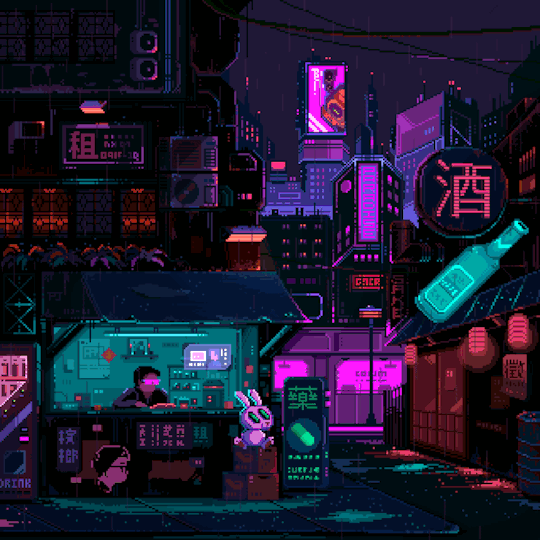
#cyberpunk#solarpunk#steampunk#cyberpunk history#western cyberpunk#science fiction#scifi#william gibson#neuromancer#genre history#punk
427 notes
·
View notes
Text
Now that Anna Torv’s great work on The Last of Us is encouraging some folks to (re)discover the brilliant series Fringe, I'm reminded what a delight and joy it was to contribute the essay "In Search of Fringe's Literary Ancestors" to Kevin R. Grazier's anthology about the show, Fringe Science: Parallel Universes, White Tulips, and Mad Scientists.

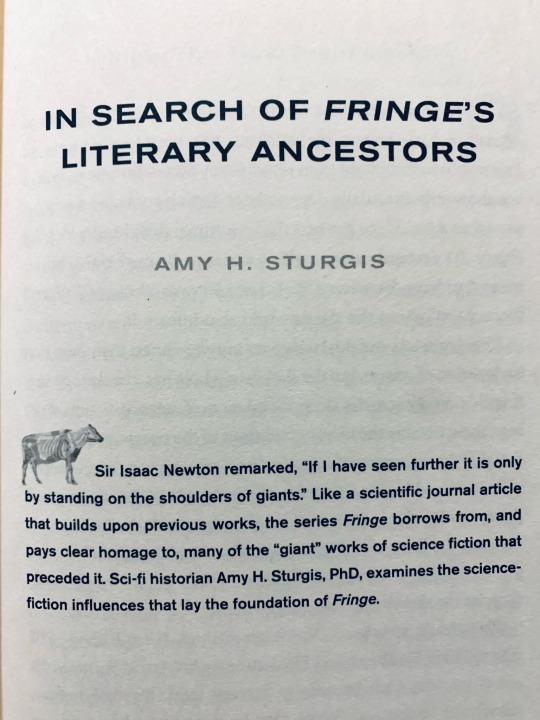
9 notes
·
View notes
Text
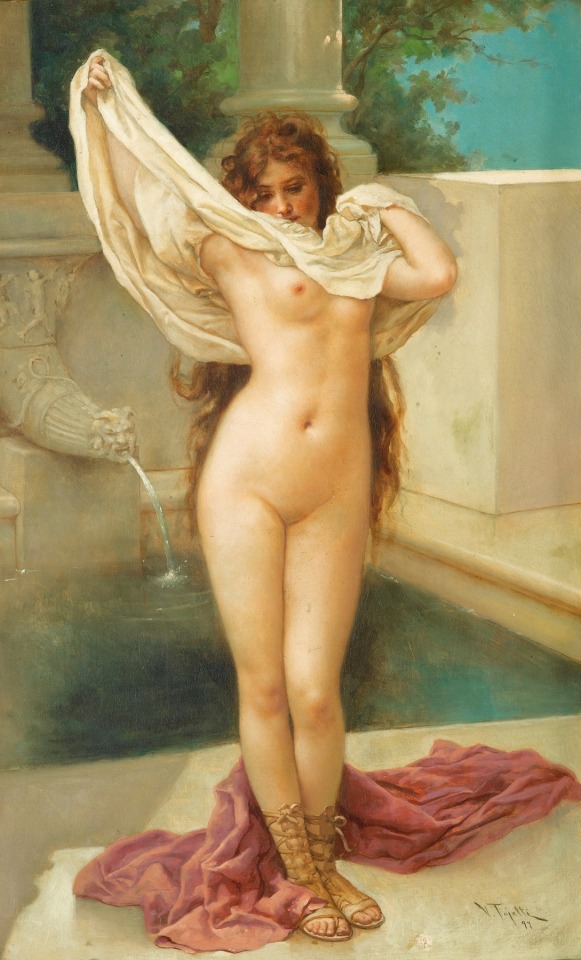
Bath time, 1897
Virgilio Tojetti
5K notes
·
View notes
Text

Women Watching Stars, Ōta Chōu, 1936
#art#art history#Ōta Chōu#Asian art#Japanese art#East Asian art#genre art#astronomy#color on paper#Showa period#Showa era#20th century art#National Museum of Modern Art Tokyo
3K notes
·
View notes
Text

‘The Quiet Pet’ (detail) by John William Godward, c. 1906.
#john william godward#vintage art#classic art#art#painting#art history#old art#art details#vintage#oil painting#animal art#genre art#neoclassicism
10K notes
·
View notes
Text
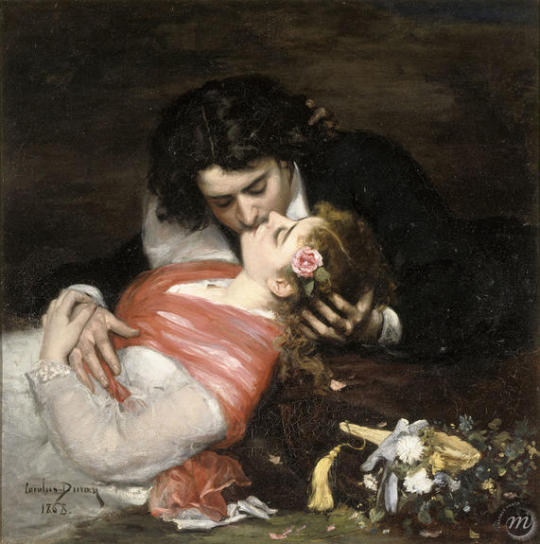
Carolus-Duran (1837-1917)
"The Kiss" (1868)
Oil on canvas
Located in the Palais des Beaux-Arts de Lille, Lille, France
The painting is a self-portrait of the artist and his wife, fellow artist Pauline Carolus-Duran née Croizette, as newlyweds.
#paintings#art#artwork#genre painting#portrait#carolus duran#oil on canvas#fine art#musuem#art gallery#french artist#history#male portrait#portrait of a man#female portrait#portrait of a woman#kiss#affection#affectionate#tender#sweet#gentle#clothing#clothes#1860s#mid 1800s#mid 19th century#a queue work of art#1k
1K notes
·
View notes
Photo
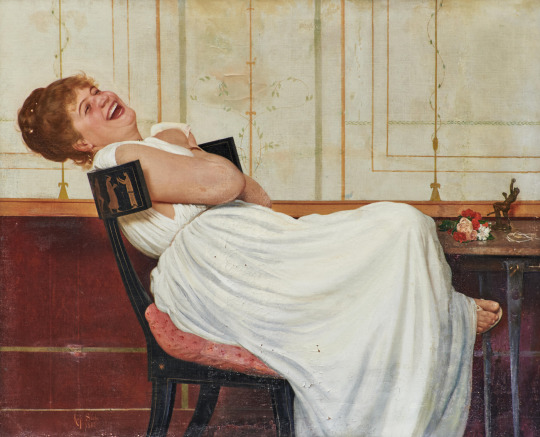
Laughing Girl, 1882 by Raffaello Sorbi
#Raffaello Sorbi#narrative painting#genre art#art#19th century art#italian art#italian painter#painting#oil painting#oil on canvas#women in art#art history
5K notes
·
View notes
Text
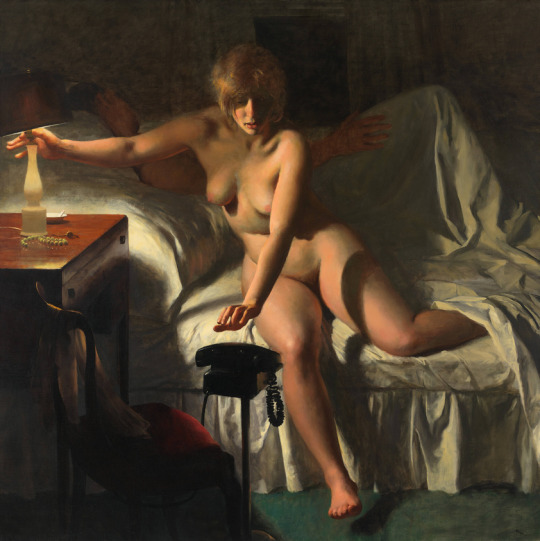
John Koch (American, 1909-1978) • Telephone Call • Unknown date • Whitney Museum of American Art, New York City
John Koch was an American painter, and an important figure in 20th century realist painting. His early work may be considered Impressionist. He is best known for his light-filled realist paintings of urban interiors, often featuring classical allusions, and set in his own Manhattan apartment. – Beautiful Paintings blog
#art#painting#fine art#art history#john koch#american artist#american painter#figurative painting#genre painting#american realism#realism#art nude#whitney museum#electric lamplight paintings#oil painting#pagan sphinx art blog#art lovers on tumblr#art blogs on tumblr
546 notes
·
View notes
Text



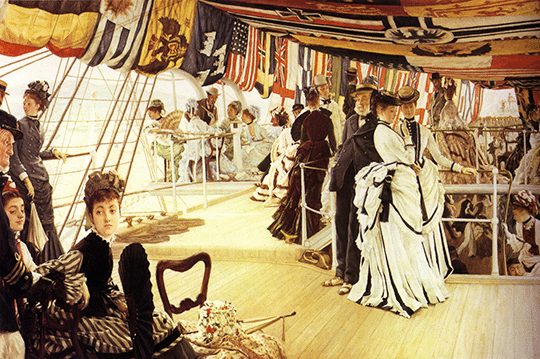
THE GILDED AGE + ART [1/∞]
Ball on Shipboard (c. 1874) by James Tissot
Mrs Blane's white dress with navy blue detail from S2E02: Some Sort of Trick
Inspired by this post (@tomcraweley)
#the gilded age#thegildedageedit#susan blane#fashion history#19th century fashion#19th century#costume design#costumes#bustle#costume drama#historical costume#james tissot#realism#genre painting#oil on canvas#art#1870s#victorian era#the gilded age + art#🎥🎥
895 notes
·
View notes
Text
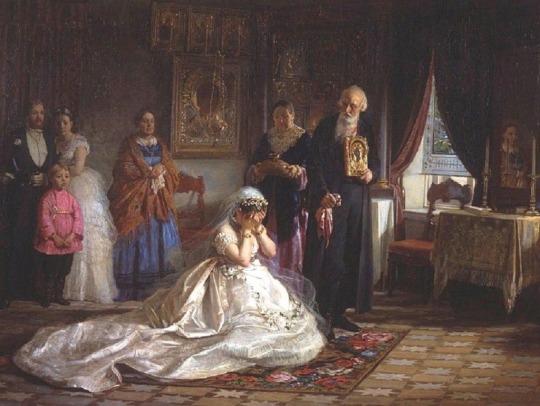
Before the Wedding, Firs Zhuravlyov. 1870s.
#aesthetic#art#art history#fashion#historical fashion#historical art#women in art#women#victorian#victorian aesthetic#1870s#1870s aesthetic#genre painting#Russian art#Russian history#imperial Russia#wedding#genre#wedding art#red#red aesthetic#1870s wedding#1870s dress#1870s gown
319 notes
·
View notes
Text
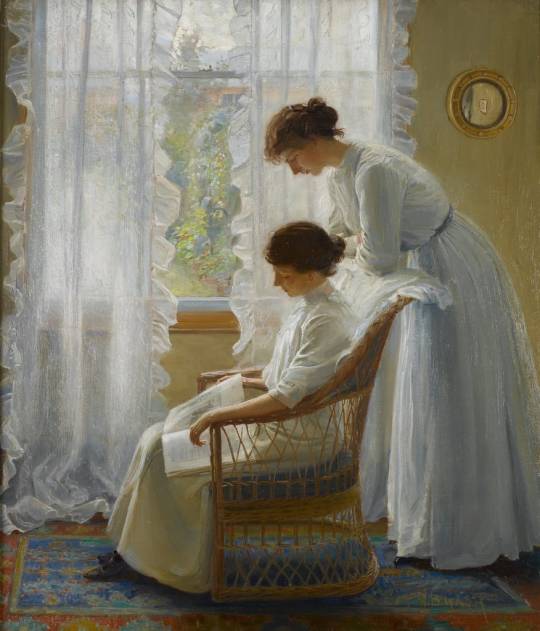
Walter Bonner Gash (British, 1869-1928) • New Book • c. 1912
#art#painting#fine art#art history#walter bonner gash#british artist#victorian era painting#early 20th century british art#oil painting#women in white#genre painting#women in paintings#la robe blanche#the white dress#art blogs on tumblr#art lovers on tumblr
246 notes
·
View notes
Text
The Hopelessness of Cyberpunk
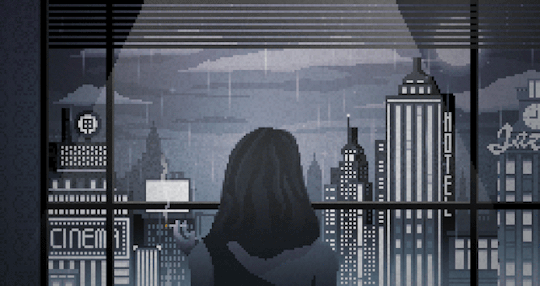
So, let me talk about the thing that made me fall out of love with the Cyberpunk genre - or rather that made my relationship with the genre rather complicated. And that is just... how fucking hopeless and, excuse my 2000s slang, edgy.
Don't get me wrong. Cyberpunk was always kinda edgy. That was kinda one of the point of the genre. There always has been this thing about the main characters often being anti-heroes who are just done with the world. In most of the times we have this leather duster gruff white male protagonists, who have found at least one woman associated with them in a refrigerator of some sort... You get what I am saying, right?
And yes, there always were those stories that came out on the end of "rebellion is useless" in Cyberpunk. But in those early days it was usually in a way that the protagonists were at least given their small victories.
To me it feels as if it has only gotten worse since, though. In modern Cyberpunk it seems all just super hopeless and then some people will go there and be like: "Oh yeah, that is realism! Dark and gritty, just like the real world." To which... First: "No. They only want you to think that." But second: "That's not what media is for!"
I really have to say, that I have trouble to understand why people find stories appealing that tell you: "You see how those people are exploited? Yeah? Well, guess what, them trying to do something against it is hopeless. So do not get any ideas, yeah?"
And of course there is the other thing with Cyberpunk, too. A lot of Cyberpunk has just lost the entire punk stuff, outside from the aesthetic. Cyberpunk was original about fighting against the entire system - even if it failed. But a lot of modern Cyberpunk does not do that anymore.
And... It is just frustrating.
Just allow the characters to be punk. Allow characters to try and fight the system. And allow them at least their own little victories, even if they do not save the world.

48 notes
·
View notes
Text
15 Years of "Looking Back on Genre History"
I've been contributing my "Looking Back on Genre History" segments to the StarShipSofa podcast for 15 years now. All of my past segments are listed (with their topics and links!) on the "Podcasting" page of my website. (Scroll down to the "Looking Back on Genre History" section.)


#StarShipSofa#Science Fiction#Science Fiction History#Science Fiction Studies#Genre History#Amy H. Sturgis#Podcasting
5 notes
·
View notes
Text
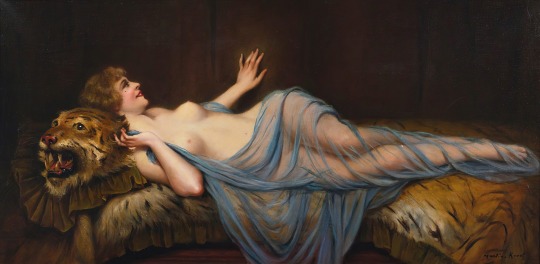
Femme au tigre
François Martin-Kavel
1K notes
·
View notes
Text
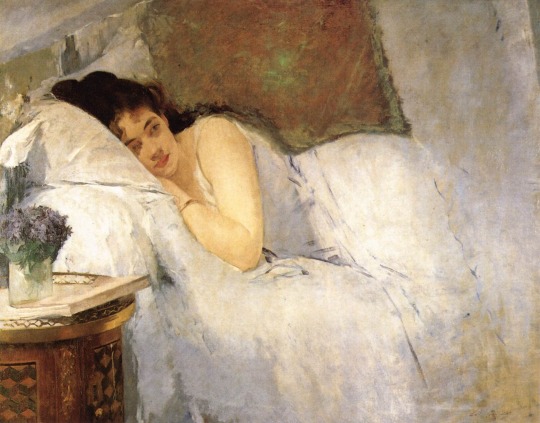
Morning Awakening, Eva Gonzalès, 1876
#art#art history#Eva Gonzalès#female artists#portrait#portrait painting#genre painting#genre art#Impressionism#Impressionist art#French Impressionism#French art#19th century art#oil on canvas#Kunsthalle Bremen
2K notes
·
View notes
Text
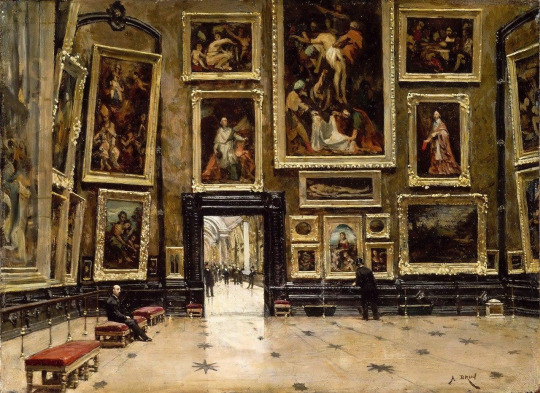
‘View of the Salon Carré at the Louvre’ by Alexandre Brun, c. 1880.
#vintage art#classic art#art#painting#oil painting#vintage#moody art#old art#antique#art history#art details#louvre#alexandre brun#interior#genre art#genre painting#realism
2K notes
·
View notes